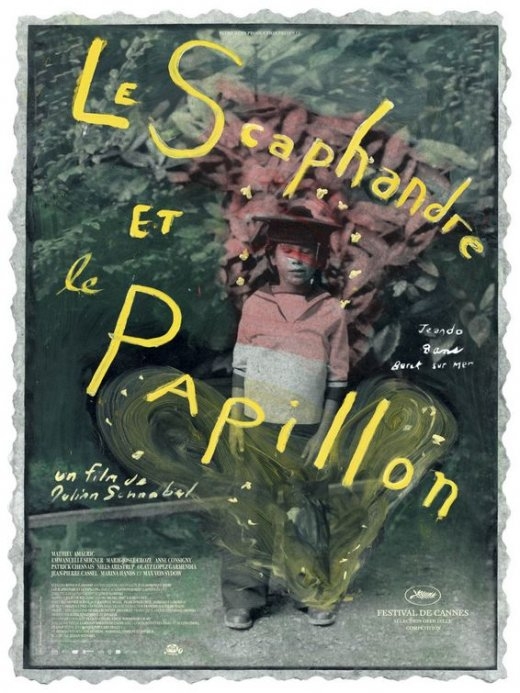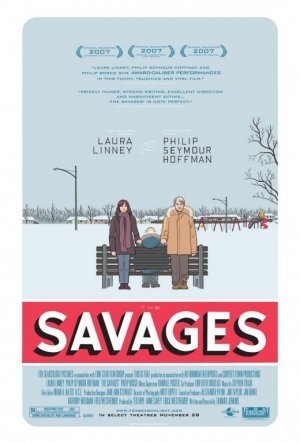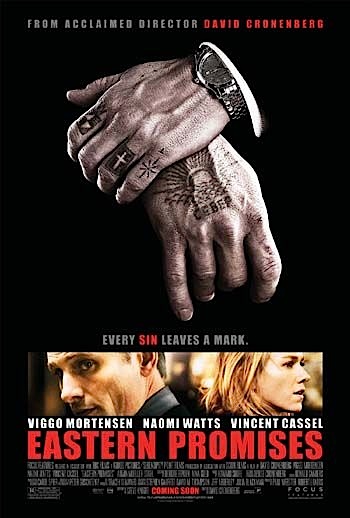
 BY DAN BUSKIRK FILM CRITIC It isn’t often that I reach out for a sports analogy, but the 2007 film season seems have lacked a very deep bench, particularly here in the Philly market. Procrastinating on submitting that “authoritative” Top Ten of 2007 list has allowed me to gaze over a number of critic’s year-end lists, and it is distressing how similar the lists read. There are two or three on my list that seem to be on almost everyone’s list as well as another small handful of other titles (There Will Be Blood, Juno, Sweeney Todd, Away from Her, Before The Devil Knows You’re Dead) that seem to fill out most other lists. I won’t argue with most of these picks, I understand their strengths, yet their omnipresence points to a year when outside of a few high-profile exceptions, the independent and foreign films distributed were a mild and unadventurous bunch. There were your extra-large servings of restrained French imports and self-consciously quirky U.S. comedies while conspicuously missing was much Asian or South American film, let alone African or Middle Eastern cinema. The International House and the Philadelphia Film Festival did a good job to open the door a crack to hint at what we’re missing, yet sadly Philly’s film booking, and American film distribution in general, seem to be at a low-point for securing much adventurous cinema.
BY DAN BUSKIRK FILM CRITIC It isn’t often that I reach out for a sports analogy, but the 2007 film season seems have lacked a very deep bench, particularly here in the Philly market. Procrastinating on submitting that “authoritative” Top Ten of 2007 list has allowed me to gaze over a number of critic’s year-end lists, and it is distressing how similar the lists read. There are two or three on my list that seem to be on almost everyone’s list as well as another small handful of other titles (There Will Be Blood, Juno, Sweeney Todd, Away from Her, Before The Devil Knows You’re Dead) that seem to fill out most other lists. I won’t argue with most of these picks, I understand their strengths, yet their omnipresence points to a year when outside of a few high-profile exceptions, the independent and foreign films distributed were a mild and unadventurous bunch. There were your extra-large servings of restrained French imports and self-consciously quirky U.S. comedies while conspicuously missing was much Asian or South American film, let alone African or Middle Eastern cinema. The International House and the Philadelphia Film Festival did a good job to open the door a crack to hint at what we’re missing, yet sadly Philly’s film booking, and American film distribution in general, seem to be at a low-point for securing much adventurous cinema.
Korea’s Hong Sang-Soo’s Woman On The Beach, viewed at the 2007 PFF, is a prime example. Featuring a trio of neurotic city folk and their romantic entanglements during a weekend trip to the seashore could not be more universal, yet its writer/director Hong Sang-Soo is working at a level of craft far beyond any of his American counterparts. After devastatingly accurate observations on the gamesmanship that defines and often squelches modern romance, the film reaches its emotional climax in a daringly uncinematic scene in which the lead character maps out on a tablet with magic marker exactly how memory distorts his relationships. It is understandable how a film like Woman On the Beach could get lost in the shuffle — it has barely a hook to sell it with, except that it understands what saps for love we are better than almost any film you could name.
and their romantic entanglements during a weekend trip to the seashore could not be more universal, yet its writer/director Hong Sang-Soo is working at a level of craft far beyond any of his American counterparts. After devastatingly accurate observations on the gamesmanship that defines and often squelches modern romance, the film reaches its emotional climax in a daringly uncinematic scene in which the lead character maps out on a tablet with magic marker exactly how memory distorts his relationships. It is understandable how a film like Woman On the Beach could get lost in the shuffle — it has barely a hook to sell it with, except that it understands what saps for love we are better than almost any film you could name.
Of similar small domestic features, only The Savages approaches Hong Sang-Soo’s achievement, despite its somewhat contrived set-up. Tamara Jenkins’ unsentimental take on dysfunctional families (her second feature) refuses to kiss and make up, maintaining her sense of humor while admitting that not every family member gets conveniently weepy when someone needs a hug. Philip Seymour Hoffman and Laura Linney as the brother and sister don’t necessarily show us any side of their talents we haven’t seen before, they just further cement their reputations as among the most engaging actors working today.
The Coen’s grim comeback No Country For Old Men and Julian Schnabel’s The Diving Bell & The Butterfly have been almost universally embraced, presumably for their ability to transcend the expectations people have for the western and medical drama genres. Both escaped their story’s conventions so well that they leave you unmoored, with no idea where they were headed next. It’s my preferred movie-going state, being so swept away the film’s machinations disappear, and both these films exude that haunting, waking-dream quality.
Todd Haynes’ I’m Not There has the added force of plugging into the public’s 40-odd year absorption with the mystique and artistry of Bob Dylan. Imagining a whole world springing from particular Dylan albums and phases brought out a giddy and youthful side of Haynes yet I’m still sad that the film’s exuberance has not translated well to the non Dylan-philes among my friends.
 Both the East German Stasi drama The Lives of Others and Paul Verhoeven’s Black Book deal with life under oppressive German rule, with Lives treating it as disturbingly relevant history and Black Book transforming it as a darkly comic and grotesque “Woman’s Picture” (oh, what Barbara Stanwyck could have done with this). Black Book showed Verhoeven in prime form. If you’re a fan of the Showgirls director’s over-the-top tastelessness it hard to beat the sewage bath our heroine endures on her way towards thwarting the Nazis. If that’s not your idea of a night out at the movies, well that’s understandable too.
Both the East German Stasi drama The Lives of Others and Paul Verhoeven’s Black Book deal with life under oppressive German rule, with Lives treating it as disturbingly relevant history and Black Book transforming it as a darkly comic and grotesque “Woman’s Picture” (oh, what Barbara Stanwyck could have done with this). Black Book showed Verhoeven in prime form. If you’re a fan of the Showgirls director’s over-the-top tastelessness it hard to beat the sewage bath our heroine endures on her way towards thwarting the Nazis. If that’s not your idea of a night out at the movies, well that’s understandable too.
Like Verhoeven, David Cronenberg exceeded most of his contemporaries in getting his most twisted obsessions on screen, even though his recent work has backed away from the horror genre from which he sprung. I found his latest Eastern Promises to be a more engaging exploration of identity and violence then his similar A History of Violence but maybe its more ghoulish Russian mob hi-jinks was what kept this film from finding its crossover audience. Still, Viggo Mortensen’s naked fight to the death in a London steam bath is one of the great action set-pieces of recent years.
Leaving the oddest ducks for last are two ragged but right satires that barely made it to town. End Of The Line is a Canadian import and maybe the most audacious zombie film of all time. Stuck in the Montreal subway tunnels, commuters look to escape the dead-eyed homicidal followers of a doomsday religious cult. Brandishing their crucifix knives and sweetly mewing “Jesus Loves You” as they kill all non-believers in sight, Maurice Devereaux’s pulpy thriller dares to bring to life a creepy world that is every theophobic’s worst nightmare.
And let me be so impure to offer up Mike Judge’s Idiocracy as among the most memorable films seen in 2007, when it finally hit video after a brief 2006 opening in a handful of cities. Judge starts pitching pretty wild by the film’s closing but his image of America’s future, inhabited by landfill-dwelling slobs evolutionarily dumbed down to cro-magnon status by bad TV, has become the #1 apocalyptic vision I’m most dreading.
